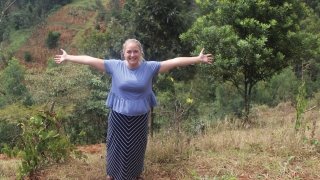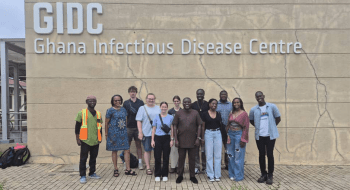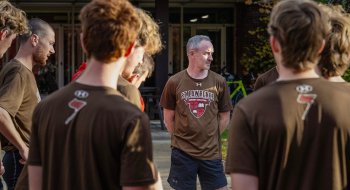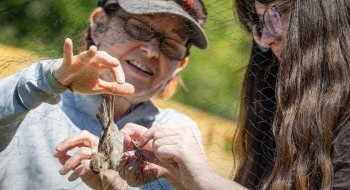
Deconstructing Underlying Assumptions
“What is women’s empowerment?” For Hannah Markey ’19, this research question cannot be answered until we challenge some underlying assumptions.
“We are all shaped by discourses,” says Markey. “So, it becomes incredibly important to ask who gets to define the terms that shape our knowledge and understanding, which then leads to us being able to understand who holds power.”
When Markey starts to explain her research, she sounds more like a Ph.D. candidate defending her dissertation than a college senior preparing for her bachelor’s degree. She has already been accepted into the international affairs graduate program at George Washington University and the Arab studies graduate program at Georgetown University.
“I can certainly picture myself going for a Ph.D. down the line,” she says. “But right now, I’m interested in traveling and gaining some experience in the field, and I want to be fluent in Arabic.”
This trajectory began when Markey took part in the Kenya Program in the fall of her sophomore year. She then studied abroad during the spring 2018 semester in Amman, Jordan, where she taught English at The Jesuit Refugee Service and wrote papers on social policies, including birthing rights in Jordan. To date, Markey has taken five courses in Arabic and tutors St. Lawrence students taking Elementary Arabic.
Double majoring in global studies and performance and communication arts and minoring in both Arabic studies and African studies, Markey knew she wanted to return to Kenya. “I was interested in conducting research on gender issues there,” she says. “I was interested in women’s financial empowerment and the discourse on empowerment.”
During her Kenya semester, she visited the Hawkers Market Girls Centre, a community-based organization that works in partnership with other organizations to provide girls and young women with vocational and life skills.
“After meeting the participants and staff, I began focusing my global studies SYE (Senior Year Experience) on gendered experiences in urban Kenya,” she says. “While I began examining the role of the United Nations Millennium Development Goals and how they were affecting experiences of women’s empowerment, I soon realized this approach was limiting. Instead, I began looking at greater structures impacting participants’ varying definitions of empowerment.”
She received a Tanner Fellowship in summer 2018 and returned to Nairobi for two weeks in August to conduct semi-structured interviews with the students and staff of the Centre.
“I aimed to identify the influence of colonialism, neoliberalism, and the rise of nongovernmental organizations on women’s empowerment discourses in urban Kenya,” she explains.
After collecting the interviews, she began looking for patterns in how the women defined empowerment and what factors inhibited their success, such as safety and clean drinking water. Then she wrote a paper for her global studies honors Senior-Year Experience (SYE) project. “I really wanted to bring these interviews to life, so people get to know these women as I got to know them.”
All of her experiences have led to her interest in continuing her studies and research. This summer, Markey will serve as an intern at the Brookings Institution as part of a St. Lawrence collaboration with the Washington, D.C.-based nonprofit public policy organization, focusing specifically on issues of security on the African continent.
“It has motivated me to pursue graduate study in international affairs—rather than political science—and eventually a career in international nonprofit work,” she reflects. “My ultimate professional goal is to work with displaced Arab women at a North African-based nongovernmental organization.”



